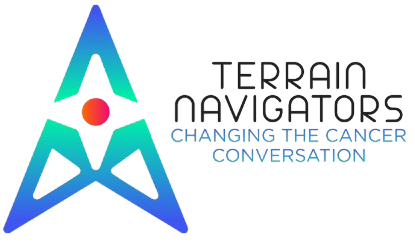When Your Cells Cry for Help
Let’s talk about the words we use around cancer.
If you’ve ever heard someone say “She’s fighting cancer” or “He lost his battle with cancer,” you know what I mean. These phrases are everywhere — in articles, fundraisers, and well-meaning conversations from friends
And I get it. They sound strong. Noble. Encouraging, even.
But I don’t use them. Not in my advocacy work. Not in my conversations with clients. Not when I’m talking to myself.
Because here’s the truth:
Words matter.
And battle, war, fighting words? They send the wrong message.
Let’s Start with “Fight”
Here’s the problem: when we frame cancer as a fight, we imply two things that are both unhelpful and, frankly, untrue.
1. That it’s a win-or-lose situation.
If you “win,” you live. If you “lose,” you die. That’s a cruel oversimplification, especially when you’re doing everything you can to stay alive.
2. That you can out-muscle or out-suffer your way through it.
This isn’t a battle of willpower. It’s not about being strong enough, positive enough, or “fighting hard” enough.
But here’s the bigger issue:
When we fight cancer, we’re actually fighting ourselves.
Cancer Cells Come fromYou!
Here’s where we have to zoom out – and get a little meta.
Cancer isn’t some invader that snuck in from the outside.
It’s not a virus.
It’s not a bacteria.
Cancer cells are our own cells.
They’re just… confused. And in reality, they probably showed up to help. They are nothing more than a symptom of other metabolic issues being off within your terrain.
Somewhere along the way, one of your cells lost the plot.
It stopped following the normal rules of communication and cooperation.
It started multiplying when it wasn’t supposed to.
It started hoarding resources and ignoring the needs of the rest of the body.
But it came from you.
So when we say “I’m fighting cancer,” what we’re really saying is “I’m fighting my own biology.”
And that’s a lose-lose situation.
Why Fighting Ourselves Doesn’t Work
Think about it this way:
- If cancer “wins,” we lose — because our whole organism dies.
- But cancer also loses — because it dies too.
Cancer has no exit plan. It’s not trying to conquer us and walk away victorious.
It’s like a fire that consumes the house it’s burning in.
So the irony of calling it a battle?
Even the cancer doesn’t really want to win.
The real goal isn’t to fight cancer.
It’s to change the environment that allowed it to grow in the first place.
We Want All Our Cells — Even the Confused Ones — to Get the Message
What we want is:
- For our healthy cells to stay healthy.
- For our confused cells to stop recruiting others to join the rebellion.
- For our entire system to work in harmony, not in chaos.
When we support the terrain — the internal environment where all of our cells live — we don’t have to go to war with ourselves.
Instead, we send a different message:
“This is a place where only healthy cells belong.”
We clean up the neighborhood. We make it harder for rogue cells to thrive.
And we do that with food, with stress reduction, with detox support, with blood sugar balance, and with compassion for our own biology — not aggression.
And Now, About “Survivor”
I’ll be honest: the word “survivor” makes me cringe a little. And I hate it when people call me brave.
Yes, it’s supposed to be empowering.
Yes, it’s better than “victim.”
But still — surviving is the bare minimum.
It means you made it through treatment. You’re still here. And that’s huge.
But surviving isn’t the finish line.
It’s just the starting line.
Because here’s what no one tells you:
- You can survive cancer and still feel like garbage.
- You can survive and live with fear, inflammation, and exhaustion.
- You can survive and still have no idea how to protect yourself from recurrence.
That’s not thriving. That’s just hanging on.
Let’s Raise the Bar
Here’s what I want for you:
- To feel energized, clear-headed, and capable.
- To understand your terrain and how to keep it resilient.
- To stop fearing every weird ache or pain.
- To feel like you’re in the driver’s seat, not just along for the ride.
And that takes more than surviving. It takes:
- Rebuilding.
- Learning.
- Being curious instead of terrified.
- Committing to prevention, not just hoping it doesn’t come back.
From “Fighter” to Protector of Your Terrain
When we shift the narrative from fighting cancer to supporting our biology, everything changes.
- We’re not battling our body — we’re partnering with it.
- We’re not living scan-to-scan — we’re building a plan.
- We’re not “survivors” — we’re protectors, rebuilders, and co-creators of our health.
And yes, this takes work.
But it’s empowering work. Life-giving work.
Not fueled by fear, but by clarity and commitment.
Final Thought
What if the best thing you can do after a diagnosis isn’t to fight harder…
but to listen deeper?
What if the cancer cells weren’t enemies… but messengers?
What if they were saying, “Hey, something’s not right here.”
And what if — instead of going to war with yourself — you got curious, made changes, and created an environment where all your cells could thrive?
That’s not a fight.
That’s a revolution.
